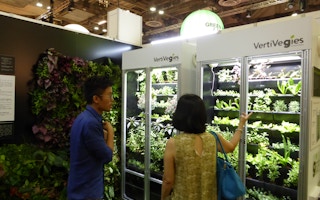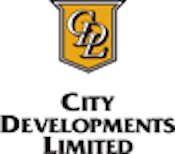Love took centre stage at this year’s Green Living fair, with more than 100 products on display that would make home living healthier and more sustainable for families in Singapore.
Held at the Marina Bay Sands Expo and Convention Centre from September 9 to 11, the theme of this year’s annual eco lifestyle event drew inspiration from “Cities of Love” - a new book by Tai Lee Siang, president of the Design Business Chamber Singapore, and Valerie Ang - that was also launched at the event.
The book investigates what makes for a more sustainable and liveable city, and identifies 12 core ingredients including: Family Oriented City; Edible City; Smart Device City, among others.
Tai said in a statement: “The future of our human existence lies in our cities, by 2050 it is expected that two-thirds of the world’s population will live in them. So how can we shape the future for a better and brighter tomorrow?”
“Green living and loving our cities is something that everyone can achieve.”
The exhibits at the three-day Green Living fair were split into different zones based on the themes in the book, and saw participation from partners such as Ikea, Bosch and Lutron. There was also a variety of workshops and seminars covering topics such as organic gardening in the home, chemical-free skincare, and yoga.
The event was part of Singapore Green Building Week, which featured a roster of industry-related events such as the International Green Building Conference and BEX Asia.
Eco-Business hit the ground at Green Living to round up seven of the most interesting brands and products for more sustainable living.
1. Smart Cara
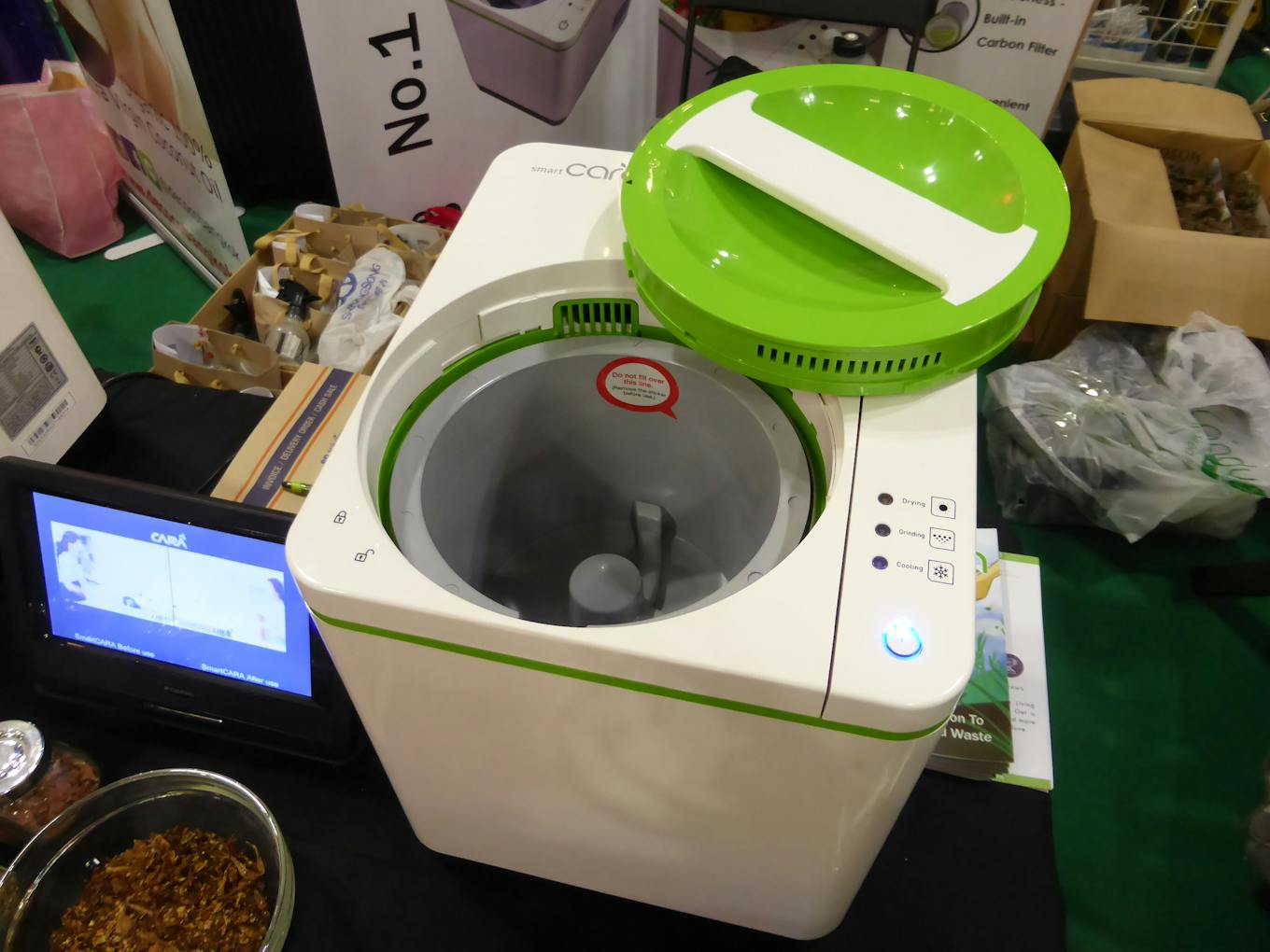
Already a hit in its native South Korea, the Smart Cara is a household appliance that aims to reduce food waste while generating useful by-product. Users put their day or week’s worth of food waste into the bucket of the machine, hit the go button and watch their leftovers turn into compost in a few hours.
Launched in Singapore in June this year, the home model holds up to one kilogramme of food waste but also comes in 10kg to 100kg versions for industrial use. A number of educational institutions in Singapore have also purchased the Smart Cara to teach students about more sustainable ways of living.
With some 785,000 tonnes of food waste generated in Singapore in 2015 alone, Smart Cara is a smarter and faster alternative to composting.
2. Nanoleaf lightbulbs
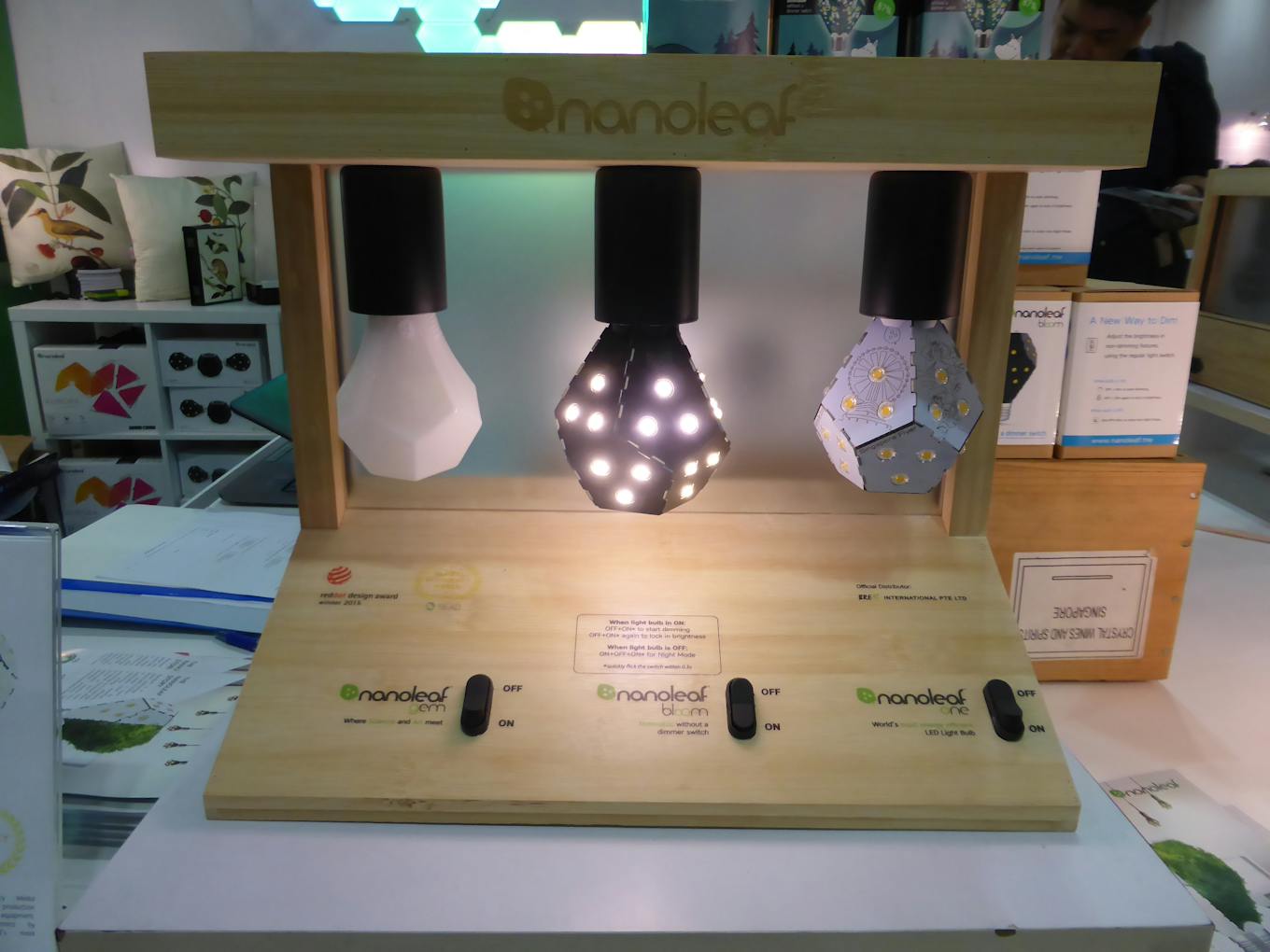
Lightbulbs have been reinvented by Nanoleaf, whose Canadian inventors noticed that traditional lightbulb designs were wasting energy as heat rather than as light. The result - an “inverted” design that still gives off enough light while minimising heat conversion.
Available in a range of models, the Nanoleaf Bloom allows homeowners to dim the brightness of the bulb even without a dimmer installed, through the simple manipulation of the regular light switch.
Nanoleaf also has a smart lighting product called the Nanoleaf Ivy, which can be remotely controlled through smart devices.
Homeowners install a device called a hub (which connects to the home Wi-Fi router), download the Nanoleaf app, and link all Nanoleaf Ivy bulbs in the home. They will be able to use voice commands or a number of switches on their smart devices to remotely control their home lighting.
3. Balm Kitchen’s Anti-Pollution Skincare, Capsule Collection
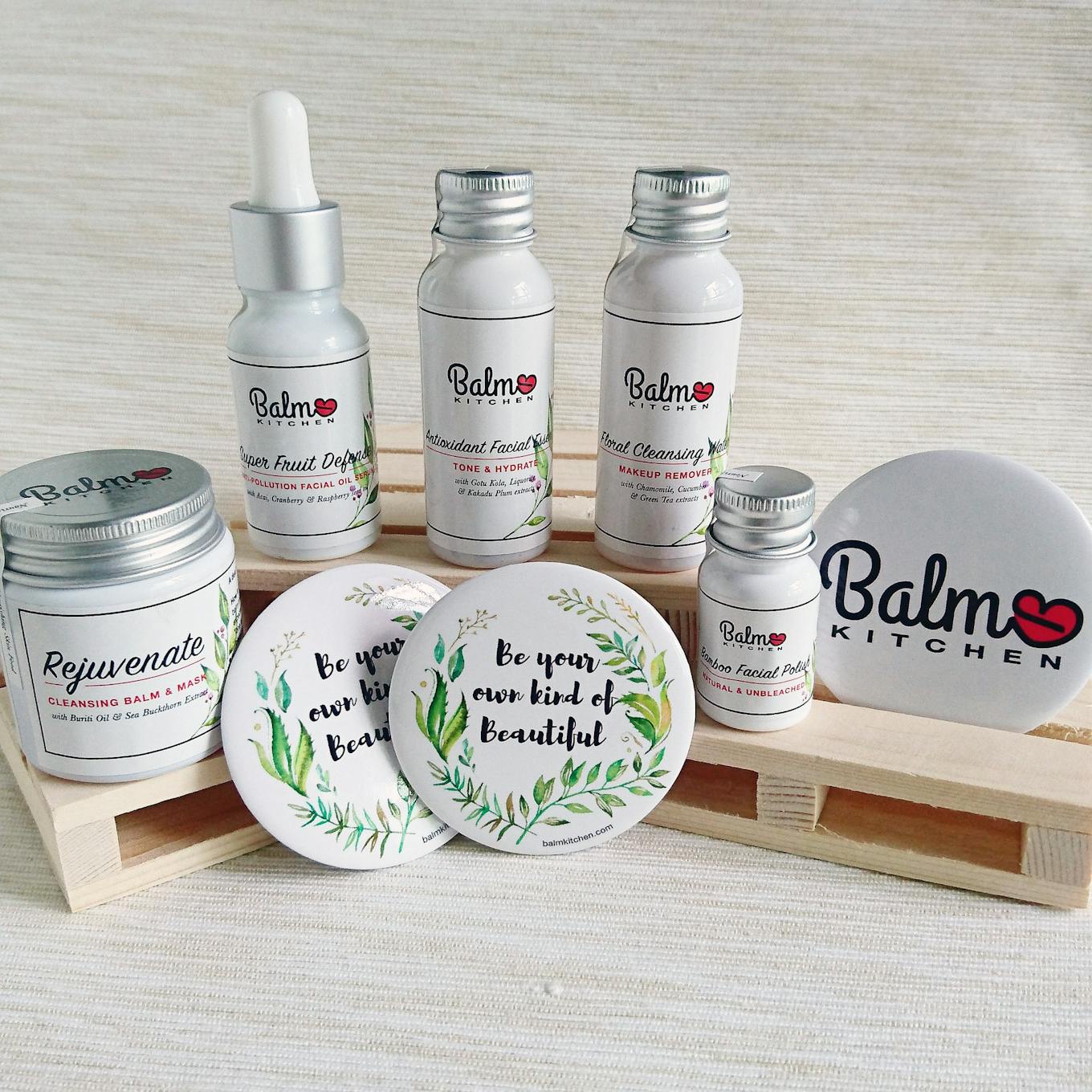
Urban pollution in the form of dust and exhaust fumes from traffic can affect one’s health and skin - and it is this challenge that Balm Kitchen founder Teresa Foo seeks to solve with her Anti-Pollution Skincare.
The skincare line is handcrafted, vegan and made with natural ingredients, and is sold in travel-size portions.
Products meet ASEAN Cosmetic Directive guidelines, are not tested on animals, and are produced in small batches in Singapore. They are made from organic ingredients shipped from the United States, Europe and Australia where possible.
4. VGP Green Wall planters
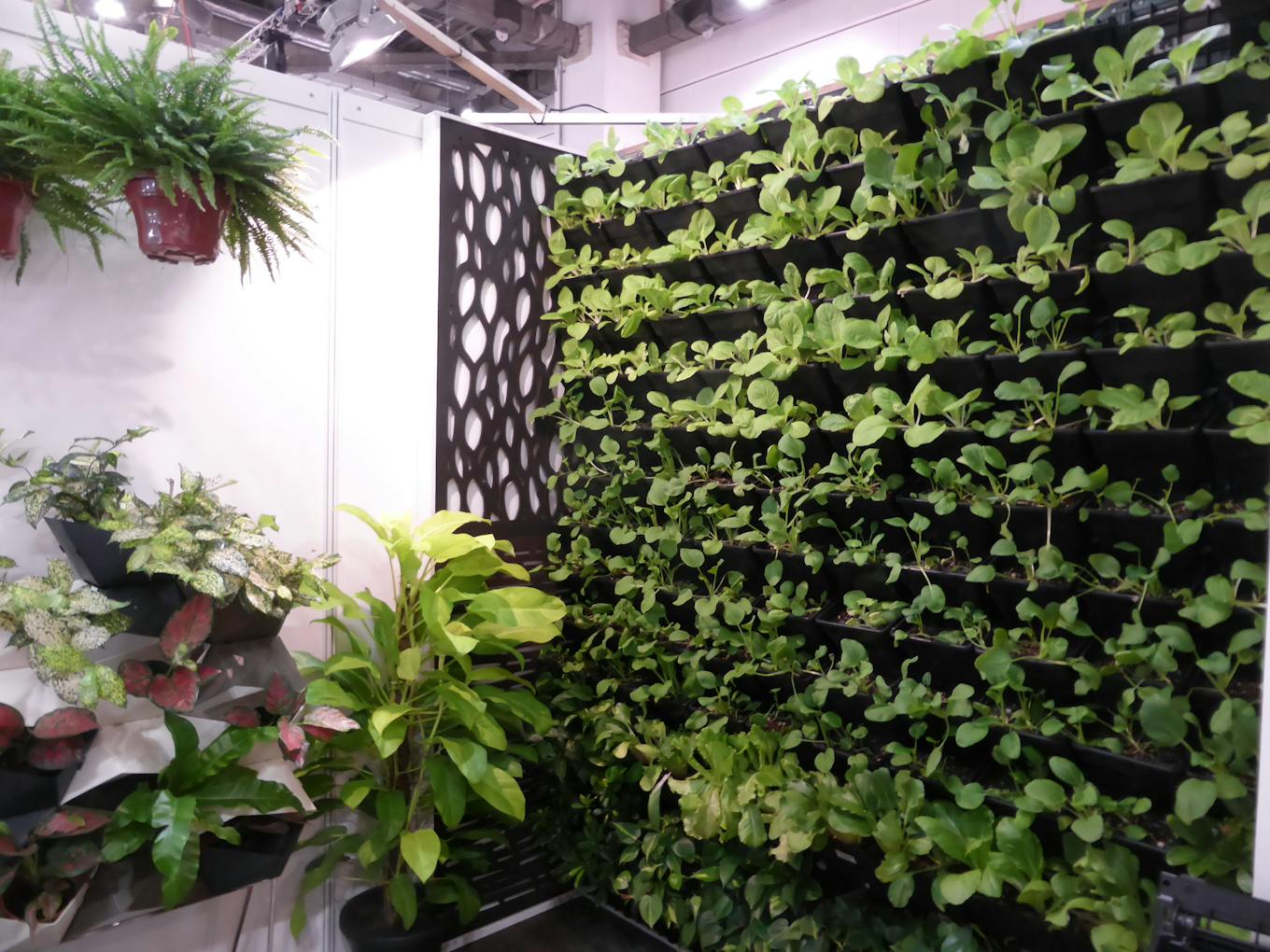
For those who have always wanted a vertical garden at home, Singapore-based The Nature Company has all the tools required to make that a reality, including seeds, planting mix, frames, and the individual planters, in space-scarce Singapore.
But those looking for a more basic approach can consider the vertical stand and 10 planter package that is portable and make good training wheels for budding home gardeners.
Pack each planter with their Environmix - a combination of compost, coco peat, leca and pumice, that is lighter than soil and drains well - put down some vegetable or herb seeds, ensure water and sunlight, and anyone can have their own edible garden.
5. Bebe Bamboo infant-friendly products
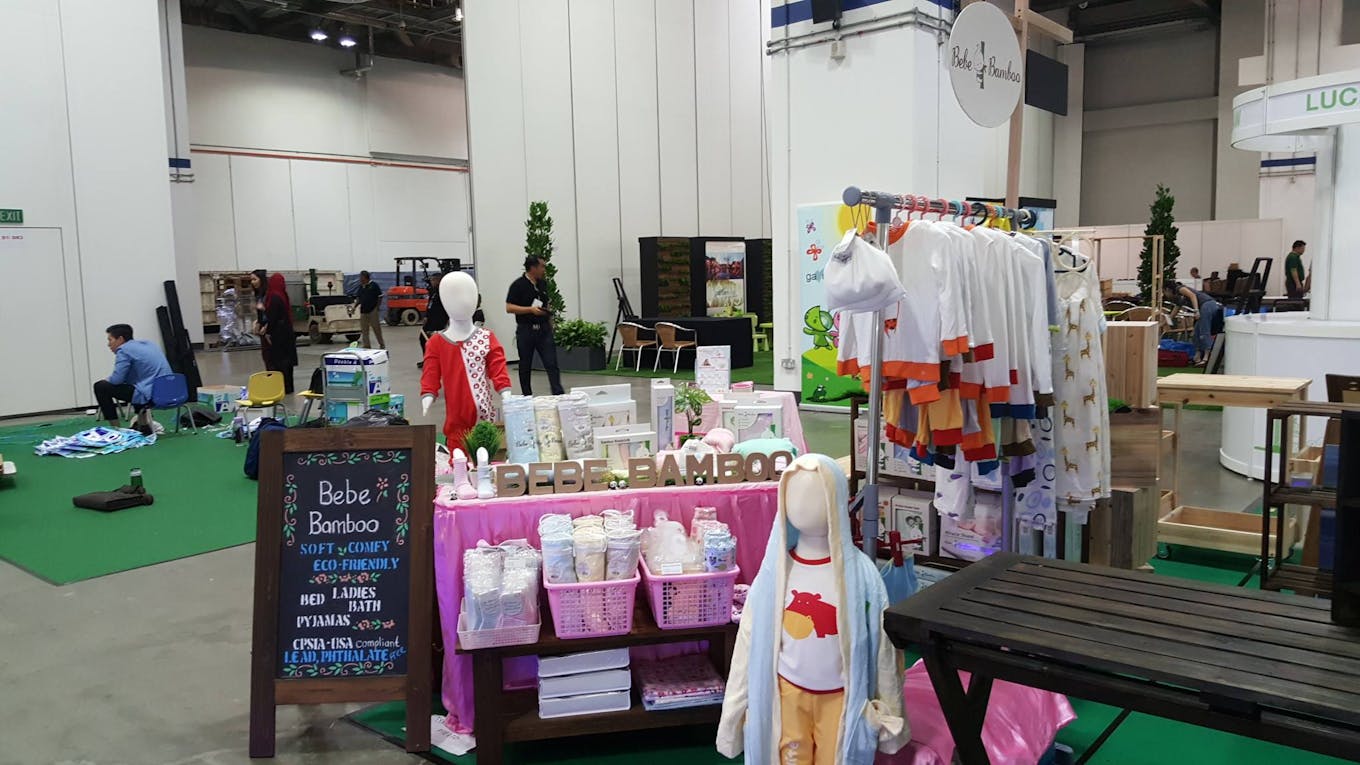
Looking for a lighter, eco-friendly material for clothes that would not chafe against delicate skin, Meiyen Chan from Singapore discovered the wonders of bamboo. Clothes made from bamboo fibres are heat-regulating, anti-fungal, lightweight, and come with natural UV protection.
The founder of Bebe Bamboo began sourcing sustainably grown bamboo from China for her range of pyjamas, socks, towels, swaddle, and bedding, which promises to keep babies cool and comfortable even in Singapore’s tropical humidity.
Products are sent to approved laboratorites for testing in order to be certified CPSIA-USA compliant, which means they are lead and phthalate-free.
6. Greenology’s VertiVegies
Homeowners can grow their own hydroponic vegetables at home without the fuss of building a farm from scratch.
Greenology’s plug-and-plant VertiVegies home system stands at the height and depth only slightly less than an industrial-sized refrigerator, and comes with rows of planter boxes that are linked in an enclosed system circulating water and nutrients, with overhead lights for plant growth.
The soil-less system is naturally vented, comes with wheels for portability, and only requires the occasional clean and top-up of fertiliser into the system in exchange for an abundance of herbs and vegetables that can be consumed directly. Greenology can custom-make its VertiVegies for smaller or larger spaces. How’s that for farm to table?
7. Think Green It’s Fabulous’ recycled lamps
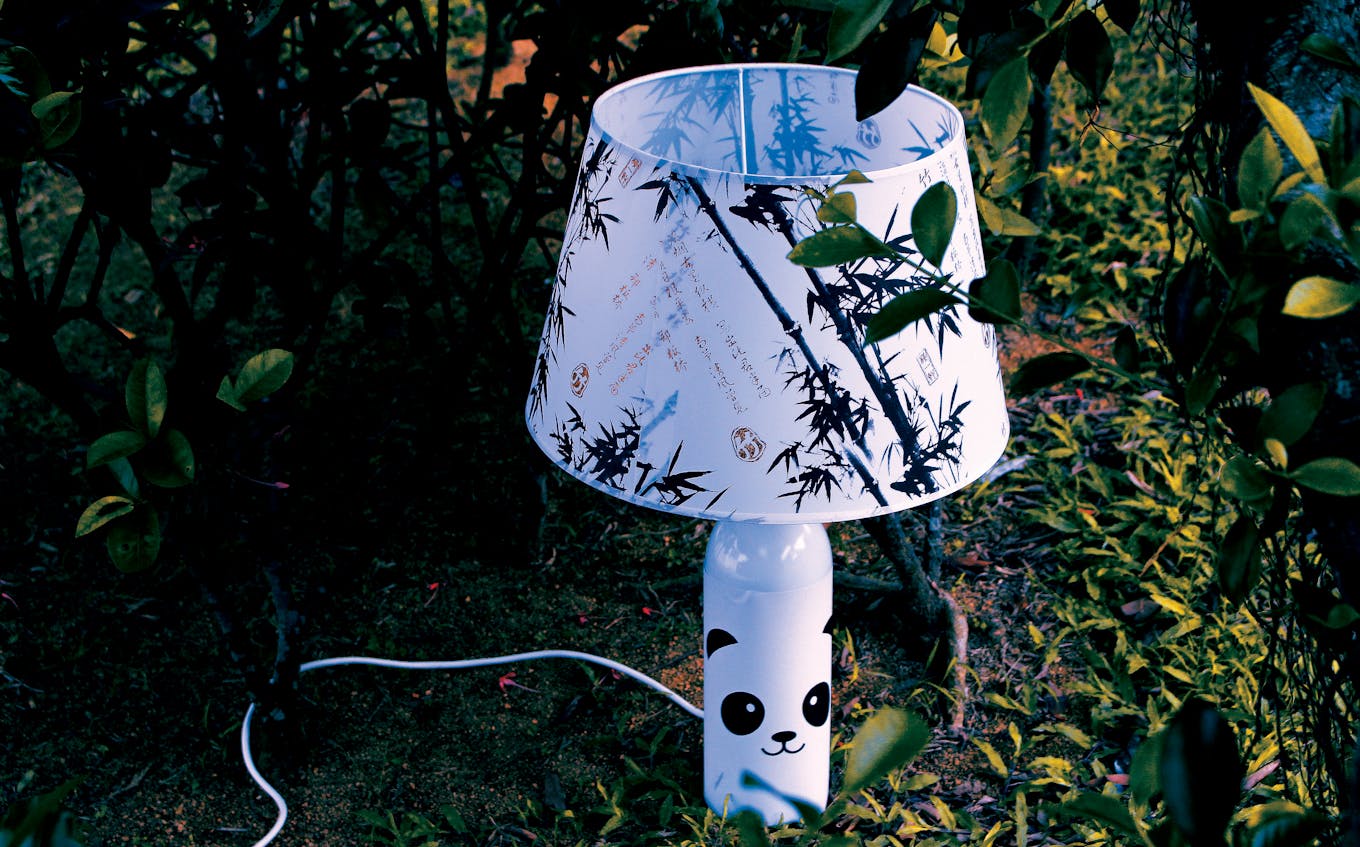
Known as up-cycling, Think Green It’s Fabulous (abbreviated as TGIF) takes unwanted glass bottles and turns them into one-of-a-kind works of art.
Recycling specialist and owner Dave Yeoh reimagines the possibilities for these bottles as lamp stands, painting and reworking them accordingly, before putting them together with new lampshades.
The company held a silent auction for a number of its lamps at the Green Living event, with 50 per cent of proceeds going to the World Wildlife Fund for Nature.
Eco-Business is producing a special e-newsletter featuring stories on the proceedings at IGBC 2016, kindly supported by City Developments Ltd and the Building and Construction Authority. Sign up to receive the newsletter here.

